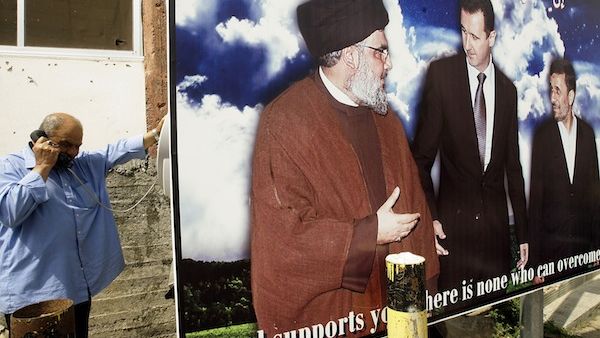President Michel Sleiman said Friday that adhering to the Baabda Declaration and placing Hezbollah’s weapons under the Army’s control was the only way to defend Lebanon against Israeli aggression.
The president’s remarks came one day after Hezbollah leader Sayyed Hasan Nasrallah said Syria would supply his party with advanced arms that would upset the balance of power with Israel, in response to last week’s Israeli airstrikes on Damascus. The attack reportedly targeted shipments of sophisticated arms destined for Hezbollah.
Nasrallah also said Hezbollah would assist other resistance groups seeking to liberate the Syrian Golan Heights. After the Israeli airstrikes, Syria gave Palestinian factions permission to launch military operations against Israeli troops occupying the Golan Heights.
“What protects Lebanon and its economy is the democratic system and enhancing the authority of the law. What also protects it is the Baabda Declaration, which called for neutrality and nonintervention in the affairs of other countries,” Sleiman told visitors at Baabda Palace, according to a statement from the president’s office.
“What will also protect [Lebanon] is a strategic vision putting the resistance’s weapons at the disposal of the Army to defend Lebanon against Israeli aggression,” Sleiman said.
The president said that providing the Army with advanced weaponry would contribute to protecting the country as well.
During a National Dialogue session last year, Sleiman proposed a defense strategy that would allow Hezbollah to keep its arms on the condition they be placed under the Army’s command.
March 14 MPs strongly criticized Nasrallah’s remarks. Future bloc MP Ahmad Fatfat told The Daily Star that Nasrallah’s speech violated the “sanctity” of the state, saying the resistance was no longer defending Lebanon.
“It’s clear that Sayyed Hasan Nasrallah has violated the sanctity of the state as he overrides institutions ... and acts on behalf of the state without any credibility,” Fatfat said.
“Not only did he plunge Lebanon into the flames of a huge fire, against the interest of the Lebanese people, but he also officially made Lebanon an affiliate of the Iranian regime,” he added.
“Their claim that the resistance aims to defend Lebanon is no longer valid,” he said. “It is in the defense of Syria and Iran.”
Fatfat also warned that Nasrallah’s remarks, and Hezbollah’s actions, could give Israel “many opportunities” to target Lebanon.
Batroun MP Antoine Zahra, from the Lebanese Forces, criticized Nasrallah for involvement in what he called an Iranian-backed plot that could bring war to the region.
“War is coming to the Lebanese border [with Israel],” Zahra said in a radio interview, adding that any hopes of a tranquil summer had “evaporated.”
Nasrallah’s pledge to stand by Damascus had ended the possibility of dialogue, he said.
“We aren’t ready to sit down with those who fight in defense of the Syrian regime to serve their regional policies,” Zahra said.
Aley MP Fadi Habr, from the Kataeb Party, said Nasrallah’s speech put Lebanon further under the influence of Iran.
“His comments serve Iran, which has interests in Lebanon, Syria and Iraq,” he told The Daily Star. “Rather than having Lebanon take a neutral side, Nasrallah has tied Lebanon to the Golan front and is already involved in fighting in Qusair [in Syria].”
Zafer Nasser, the secretary-general of the Progressive Socialist Party, questioned the value of trumpeting a well-known fact.
“It is not a secret that Syria provides Hezbollah with arms. I wonder how useful it is to confirm the pretext Israel uses to attack Syria,” Nasser said.
Commenting on Hezbollah’s pledge of assistance to the Golan Heights, Nasser said, “let there be a resistance in Golan first and it will not be a problem if any group supports it.”








